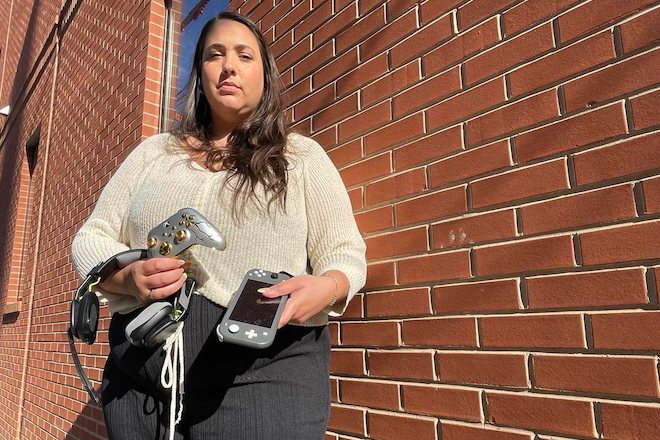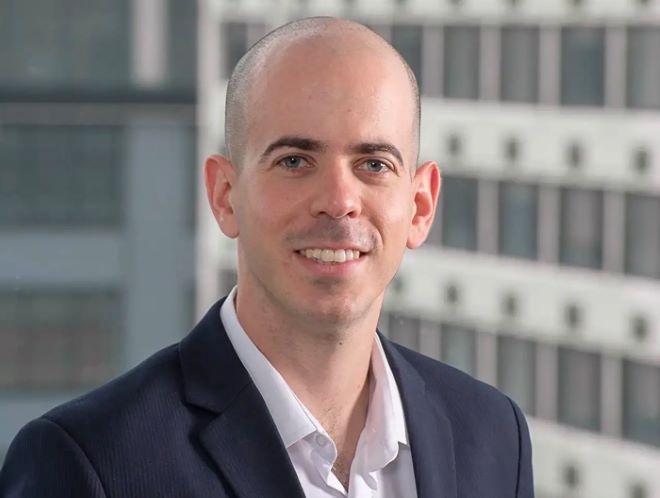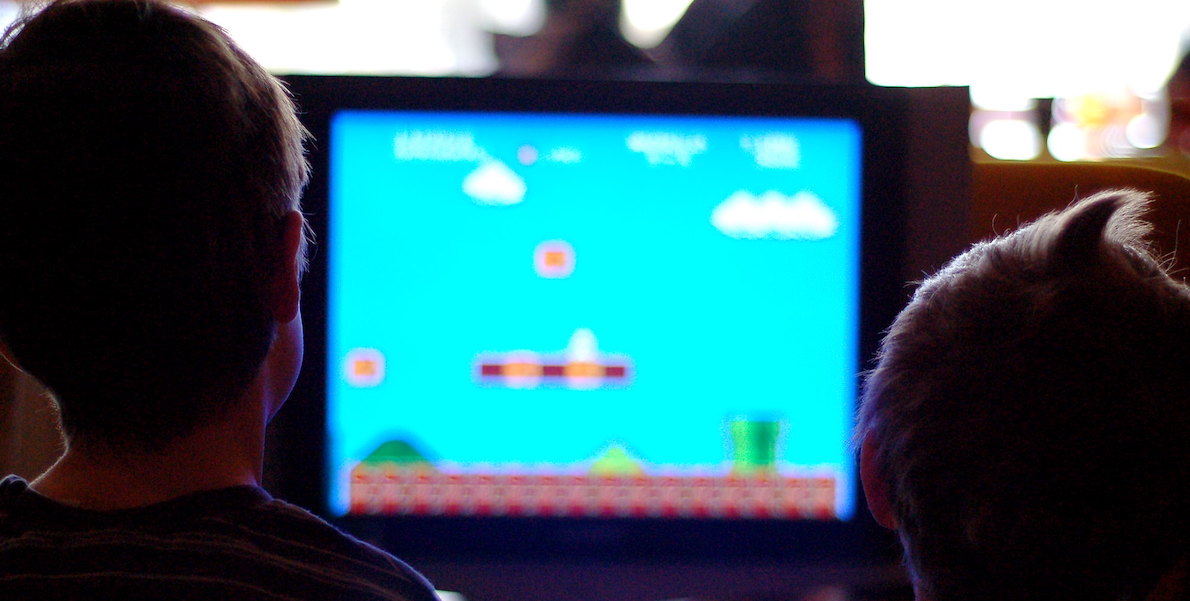Cyberbullying takes many forms. Although it’s best known to occur on social media platforms like Snapchat, TikTok and Instagram, these days, it’s increasingly pervasive among multiplayer video games, the kinds kids play before and after school.
Ron Kerbs knows this. He’s been playing these games for a while. But it wasn’t until he heard about a young woman from Germantown who was sexually harassed by someone she met online that he realized how bad the problem was — and how he could make a difference.
“I’m a gamer myself, and I know what is happening within those games,” he says. Parents can add filters to their children’s games, but players of all ages are notorious for navigating their ways around them. “There was no available solution,” says Kerbs, “It was too hard technologically to monitor all of those voice conversations within games.”
Kerbs launched KIDAS, a subscription software that alerts parents when their children’s conversations or behaviors in-video games and on platforms like Discord have veered — or are veering toward — danger.
A local mom sounds the alarm
At first, Samm Pheiffer of Fishtown didn’t have an issue with her 8-year-old twin second-graders playing video games Fortnite and Roblox after school. But then she overheard an insult thrown at one of her sons through an in-game chat feature — and realized her children were targets of cyberbullying.
“I started being able to hear out loud what was happening in Fortnite, when you’re able to talk to each other on there, and also from their conversations on Roblox,” Pheiffer says. She started looking through her kids’ in-game text communication too. “So there is a chat on Roblox … and I noticed … that some kids were saying some mean things. That’s when I became concerned.”

Pheiffer is not alone in her concern. In a 2019 survey conducted by the market research company Savanta, 84 percent of parents worldwide said they were worried about their children’s online safety. Since that time, games like Roblox and Fortnite have only grown in popularity. Today, more than 55 million people play Roblox and 25 million play Fortnite — every day.
The Philadelphia Anti-Defamation League (ADL) office found that nearly one in 10 gamers between 13 and 17 (that’s 2.3 million teens) have been exposed to White supremacist ideology themes while playing multiplayer games like Roblox, World of Warcraft Fortnight, Apex Legends, League of Legends and Madden NFL.
And, a recent article on Care.com detailed disturbing episodes of inappropriate interactions with — even online assaults of — elementary school-age players on Roblox. (Even though the platform is best known among kids, the average age of a Roblox player is 34 to 36, according to Care.com.) There have been national calls for parents, despite their kids’ love of the many good parts of the game, to hit delete.
Kerbs says “about 60 percent of the kids who play online will be bullied, harassed, or scammed before they turn 18,” he says, “That’s an alarming statistic that we cannot ignore.” So he decided to do something about it.
How he built it
Originally from Israel, Kerbs worked for the Israeli Defense Forces as an engineer before moving to Philadelphia to attend graduate school at the University of Pennsylvania. Kerbs started KIDAS — short for Kid Alert Systems — as a student project in 2019, receiving guidance from the Wharton School of Business and entering Comcast’s accelerator program. Later, he hired Children’s Hospital of Philadelphia psychologists and psychiatrists as consultants.
Penn supplied early-stage grants. Comcast invested. Kerbs raised $3 million in startup funds, plus a $500,000 federal grant. In 2022, he began working full-time on the software, hiring “a team of engineers that could tackle video game security head on,” he says. KIDAS is not profitable yet, but it’s growing.

Today, the company has staff in Philadelphia, Chicago and Miami, and has expanded into Israel, the Netherlands and Canada. They have 10 full-time employees, including one parent who came on after seeing what the software did for her child. Their local clients include Metro Esports, which works with the YMCA of Philadelphia. Beyond Philly, one customer is Stand4Kind, an organization that promotes anti-bullying and kindness in schools, in Utah, Arizona and Texas. They’ve partnered with Intel for distribution. So far, hundreds of individual families have signed on.
How it works
Parents go to KIDAS’s website, download the software and install it on the PC for every child in the household. Once that’s done, KIDAS connects to the voice and text chat features in more than 220 games. The software then feeds the information to 60 algorithms that use AI to detect any risks such as bullying, harassment and scams.
The AI for KIDAS analyzes in-game communication — and alerts parents if someone or something is detected. That’s where the guidance from experts at CHOP comes in. The independent consultants generate recommendations based on the type of activity taking place and the child’s age. The software also lets parents know if the game itself is age-appropriate, the time their child spent playing it, and, increasingly, if children are spending money or sharing credit card information or other private information in-game.
For these services, KIDAS charges $6 per month or $60 for an annual subscription. The first 30 days are free. Kerbs says a significant number of families — typically 10 to 20 percent — receive alerts within the first month. Very recently, the majority of these alerts — 57 percent — have been related to financial scams or the sharing of private information.
Some alerts are more alarming than others. “Some kids were talking about real guns — their parents’ guns — and they were planning to bring them to school,” says Kerbs. In every case, KIDAS alerts the parents alone, not the gaming platform or the police.
“We provide recommendations to parents. Sometimes we do recommend that they contact law enforcement; sometimes we do recommend that they talk with their child about specific concepts, but we’re not here to preach. We’re here to provide information and to help parents and try to guide them. But in the end, it’s the parents’ choice to decide what they want to do with their kids.”
KIDAS into the future
Kristina Moon, a senior attorney in the Philadelphia office of the Education Law Center, advises parents to raise concerns about online bullying on school devices — or even among students — with school, and to ask for their support or intervention. The Center recently released a fact sheet for parents on what to do if and, almost inevitably, when, their child becomes a target of cyberbullying.
Fishtown’s Pheiffer says many of her parent friends don’t even know that there is a chat on Roblox. “Once they check it, they are always dumbfounded about what they find. So being really aware of what happens on your kid’s phone and on their tablets is important.”
Parents can do it themselves, yes. But they are busy, and many don’t know where to start looking. This is where KIDAS would like to come in. Kerbs envisions partnering one day with a large school district — like the School District of Philadelphia — to provide online security services.
Leaders at the District’s Juvenile Justice Services Center in West Philadelphia say cyberbullying is behind a sizable percentage of the tensions involving youth and gun violence — which spike when students are on vacation in summer, Thanksgiving and winter break.
During the school year, District-provided computers are monitored by GoGuardian, a software that lets the District know when students are engaging with non-District internet services. Also, “District internet traffic is controlled by a firewall, which has content and access restrictions in place to ensure District adherence to laws including the Children’s Internet Protection Act, or CIPA,” District spokesperson Monique Braxton wrote in an email to The Citizen.
Braxton says District staff have the ability to request access or blocks to internet resources using an internal filtering request process. She says these requests, including vetting for data privacy, are reviewed by the Office of Information Technology.
But Pheiffer maintains no software is perfect.
“It’s important that your kid does have a sense of privacy, but also understand that the parent does need to check the child’s phone to make sure they are safe and reminding them that it’s our job as parents to keep them safe, happy and healthy. That includes going through the phone, looking at the settings, putting on those parental controls and limiting screen time for your child.”
![]() MORE ON PROTECTING AND SUPPORTING OUR KIDS
MORE ON PROTECTING AND SUPPORTING OUR KIDS



